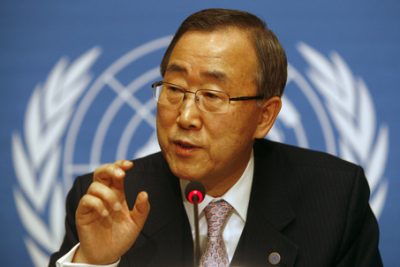By
Darell Maurice
The United Nations last week called on the international community and Congolese government to provide funds for the demobilization and reintegration of former rebels in the Democratic Republic of Congo.
“You have to have more money because without money we can not act” said Martin Kobler, Head of the UN Mission in the DRC at a press conference in Kinshasa.
The Congolese authorities on December 2013 presented the outline of a third program of disarmament, demobilization and reintegration (DDR3) believed to be for more than 12,000 Congolese militiamen.
“MONUSCO has allocated six million dollars, but the international community is somewhat reluctant to give more now because the Congolese government ‘s contribution is not clear”, Mr. Kobler said.
“The Congolese government in its plan of $10 million, now has $1.5 million there, plus 6 million from MONUSCO”, the German diplomat stated.
Questioned by press, Francois Muamba, Coordinator of the Congolese national monitoring of the Addis Ababa agreement mechanism (regional agreement signed in February 2013 to try to bring peace to the Great Lakes region), confirmed that for the current year, the DRC has allocated $1.5 million.
For the record, the $6 million of MONUSCO matches the UN’s commitment to the current year.
The total cost of ‘DDR3’ has been evaluated by the Congolese authorities to be $85 million. The state plans to finance up to $40 million in 10-million over four years, and counting on the international community for the rest.
Several foreign donors like the European Union and United States said they were ready to contribute, but their funding is lagging.
“We expect the international community to show consistently” said Mr. Muamba, asking that “we go to the release of funds.”
Thousands of former Congolese militia who have laid down their arms have for months been confined in three military bases where they await the process Mr. Muamba officially launched in May.
Organized after the Second Congo War (1998-2003), the first two DDRs did not end the violence in the east, where dozens of armed groups are still rampant. Before contributing financially to ‘DDR3’, the international community has asked Kinshasa for safeguards to build on the success of the program. It seems to so far be dissatisfied with the response.
“‘DDR3’, we did not believe”, said a European diplomat on condition of anonymity, saying the government plan “lacks practical measures” and that “the rebels are disarmed and abandoned to their fate”.
According to MONUSCO, the former rebels stationed at Kotakoli in the far northwest of the country, vandalised during the weekend a few buildings in the camp, their demobilization not advancing.
“The situation in the camp, where dozens of rebels and members of their families died in 2014, is a big concern for us” said Mr. Kobler.
According to Mr. Muamba, the 900 former rebels should be transferred shortly from Kotakoli to the Kamina base in Katanga (southeast) which offers a far better support capacity.



No Comments Yet!
You can be first to comment this post!